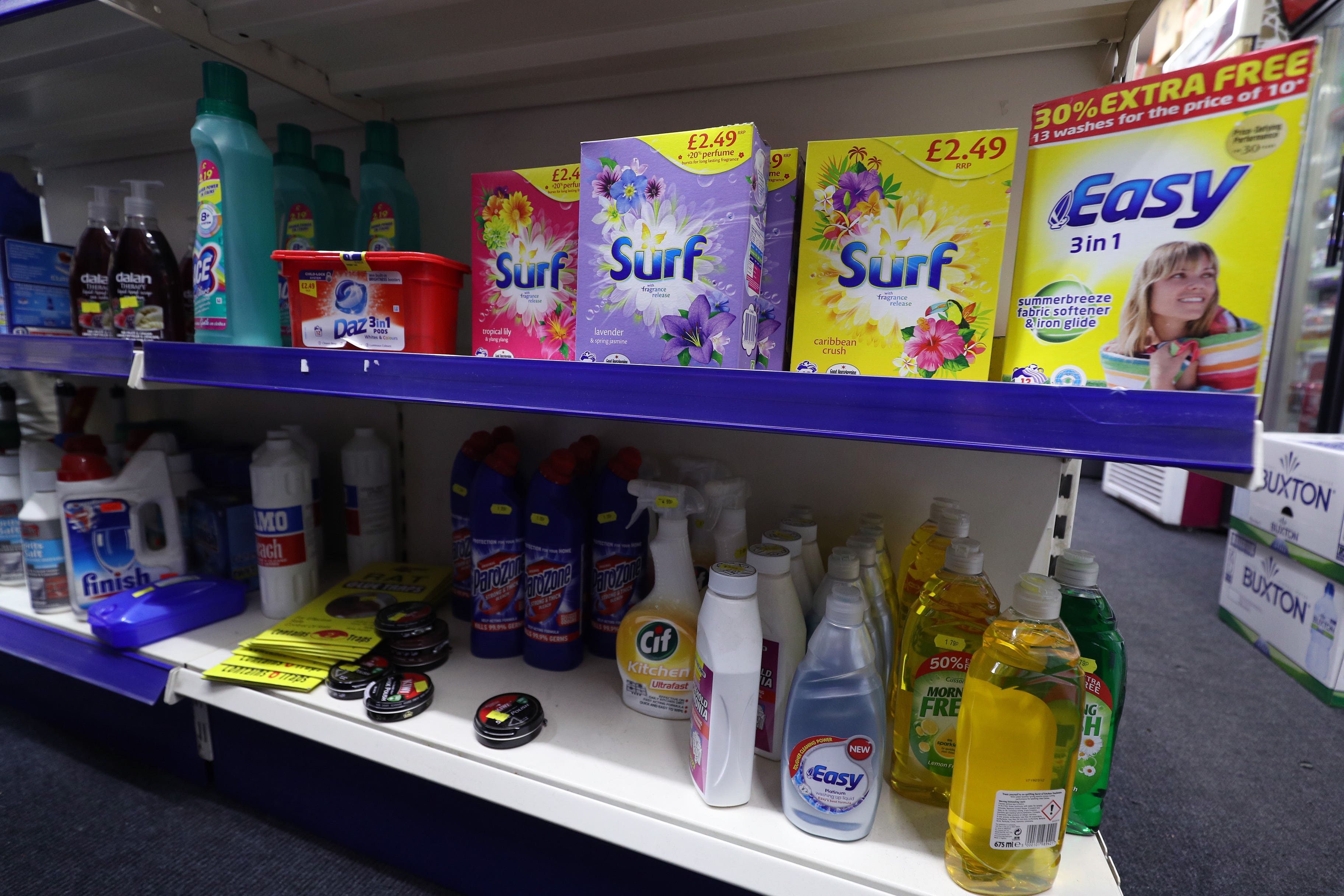Competition watchdog to scrutinise ‘green’ claims on household essentials
The Competition and Markets Authority has raised concerns that many shoppers are being misled.

Your support helps us to tell the story
From reproductive rights to climate change to Big Tech, The Independent is on the ground when the story is developing. Whether it's investigating the financials of Elon Musk's pro-Trump PAC or producing our latest documentary, 'The A Word', which shines a light on the American women fighting for reproductive rights, we know how important it is to parse out the facts from the messaging.
At such a critical moment in US history, we need reporters on the ground. Your donation allows us to keep sending journalists to speak to both sides of the story.
The Independent is trusted by Americans across the entire political spectrum. And unlike many other quality news outlets, we choose not to lock Americans out of our reporting and analysis with paywalls. We believe quality journalism should be available to everyone, paid for by those who can afford it.
Your support makes all the difference.The competition watchdog is to scrutinise “green” claims used to advertise household essentials such as food, drink and toiletries to ensure shoppers are not being misled.
The Competition and Markets Authority (CMA) said it was concerned many shoppers were being deceived and potentially paying a premium for products “that aren’t what they seem” as it launched a review of the accuracy of “green” claims on a wide range of grocery items.
A significant number are marketed as “green” or “environmentally friendly”, including up to 91% of all dishwashing items and 100% of toilet products, the CMA said.
Our work to date has shown there could be greenwashing going on in this sector, and we’ll be scrutinising companies big and small to see whether their environmental claims stack up
The move will extend the CMA’s work on so-called greenwashing, which seeks to ensure that products and services that claim to be green or eco-friendly are being marketed to shoppers accurately.
The latest review will examine products known as fast-moving consumer goods (FMCG) – essential items used on a daily basis and repurchased regularly, such as food and drink, cleaning products, toiletries, and personal care items.
The CMA will check whether companies are complying with UK consumer protection law and focus on the use of “vague and broad eco-statements”, such as “better for the environment” while lacking evidence, misleading claims about the use of recycled or natural materials in a product and how recyclable it is, and entire ranges being incorrectly branded as “sustainable”.
In 2021, the average household spent almost £70 a week on food and drink alone, and the FMCG sector as a whole is worth over £130 billion annually.
CMA chief executive Sarah Cardell said: “These products are the essentials on everyone’s shopping lists: food and drink, shampoo, laundry detergent, toothpaste, cleaning products.
“As more people than ever try to do their bit to help protect the environment, we’re concerned many shoppers are being misled and potentially even paying a premium for products that aren’t what they seem, especially at a time when the cost of living continues to rise.
“Our work to date has shown there could be greenwashing going on in this sector, and we’ll be scrutinising companies big and small to see whether their environmental claims stack up. Now is a good time for businesses to review their practices and make sure they’re operating within the law.”
Last year the CMA launched enforcement action against fashion brands ASOS, Boohoo and George, writing to the three firms outlining its concerns. The investigation is ongoing.
The CMA also produced the Green Claims Code – a guide to help businesses understand how to communicate their green credentials while avoiding the risk of misleading shoppers.